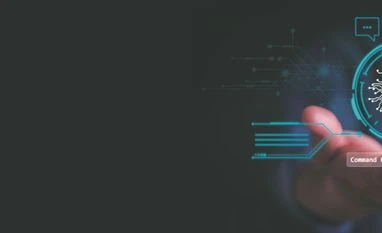AI will both create and destroy jobs: EAC-PM member Sanjeev Sanyal
Sanyal also said through this route, the curriculum can be updated seamlessly
)
Citing an example, he said people will listen to lectures on video-streaming websites and use AI chatbots to answer questionsRepresentational Image
Listen to This Article
Member of Economic Advisory Council to the Prime Minister (EAC-PM) Sanjeev Sanyal on Wednesday said that artificial intelligence (AI) will both create and destroy jobs and a lot depends on how it is adopted.
Speaking at the Bharat Chamber of Commerce at an interactive session, Sanyal claimed AI will impact highly skilled people and functions will be disintermediated.
"There is a lot of noise about AI. A lot will depend on how we adopt it. A debate is going on within the government and the public. If we don't adopt it, we will get wiped out", Sanyal said.
He claimed that the existing people in high-skilled areas would be disintermediated while jobs would be both destroyed and created.
"One area where AI will certainly make an impact is education," the economist said.
Also Read
Citing an example, he said people will listen to lectures on video-streaming websites and use AI chatbots to answer questions.
"So, students would no longer need to go to colleges except for some collaborative work. Undergraduate education could be made completely free," the economist said.
Sanyal also said through this route, the curriculum can be updated seamlessly.
"In such a scenario, universities will be places only for research and not for lecturing. A system of certification can also be created using AI," he said.
According to him, the main issue is how to regulate that by using policy measures.
Sanyal said the US has adopted the 'laissez faire' (the policy of leaving things to take their own course, without interfering) approach to AI, while Europe is in favour of having bureaucratic control.
The Chinese approach is also on the lines of Europe, said the economist who has co-authored a paper on these aspects.
Adoption of AI will also require human oversight and manual overright (creating a system where humans can say 'yes' or 'no'), need for 'explainability audits, and a regulator to keep track of things, Sanyal said.
More From This Section
Don't miss the most important news and views of the day. Get them on our Telegram channel
First Published: Oct 23 2024 | 4:56 PM IST

